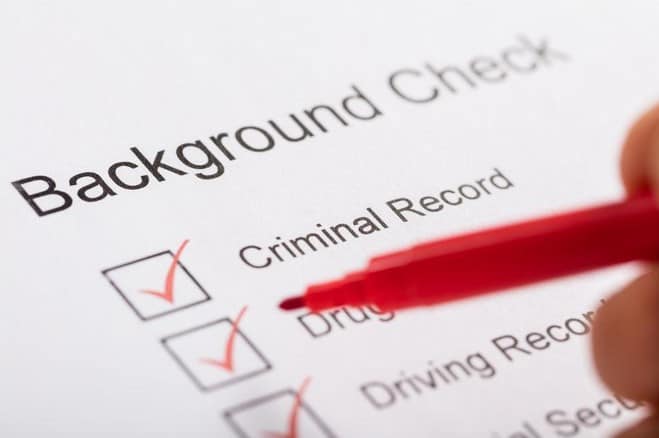Last Updated on August 30, 2021
There are many different types of background checks. Every kind of background check uncovers somewhat different personal background information. Both employers and job candidates need to understand what type of information is included in each type of background check and how it can be used. Take a few minutes and read this article to learn what shows up on a background check.
Information uncovered in employment background checks is highly sensitive and subject to strict privacy-protection regulations. The use of background checks in connection with hiring decisions is also subject to the federal Fair Credit Reporting Act (FCRA) and requirements specified by the Equal Employment Opportunity Commission (EEOC). The sharing and retention of this information also may be subject to additional state and local guidelines.

Many employers and job candidates want to know what information is included in a background check, so here are the most common results that you could show up on a background check. People finders are also a good source for such searches.
Note: This article is part of a series on totally free background check no credit card required.
Result Of A Criminal History Background Check
Nearly all background checks include a criminal history check, based on information supplied by the candidate, including their Social Security number. These checks will reveal felony and misdemeanor criminal convictions, any pending criminal cases, and any history of incarceration as an adult. Arrests pending prosecution may also be reported. Arrests that did not lead to convictions may appear in some background checks.
Records of juvenile convictions and detention that have been sealed by a court typically do not appear in these searches. Still, all other criminal convictions may appear unless they occurred in a state that forbids disclosure of convictions after a certain period. Disclosure of convictions more than seven years old is prohibited in California, Kansas, Massachusetts, Maryland, Montana, New Hampshire, New York, and Washington. Hawaii prohibits disclosure of convictions after ten years.
Result Of A Pre-employment Background Check
Pre-employment background checks typically include criminal-background checks, plus verification of information on past employment, education, and professional licenses.
Depending on the nature of the job under consideration, employers may specify that pre-hiring screenings search candidates’ driving records. Employers may also require applicants to submit to drug testing as part of the pre-employment screening process. Employment-related drug testing is required for many jobs that involve the operation of motor vehicles, hazardous or delicate equipment, or in any role entailing responsibility for the safety of the public, customers, or fellow employees.
State and federal laws limit some of what can be reported on employment background checks:
If a candidate is under consideration for a job that pays less than $75,000 annually, information on civil judgments, government sanctions, and disciplinary measures related to any professional licenses will not appear in background check results.
However, if the salary for an open position is $75,000 or more, that information may appear in your results, even if it’s older than seven years.
Result Of A Fingerprint Background Check
As its name indicates, the fingerprint background check involves using a candidate’s fingerprints and other personal information to locate historical information. The advantage of a fingerprint search is a certainty that all records associated with a given set of prints belong to the individual in question.
The precise nature of a fingerprint search can vary, depending on the type of information requested by the employer and the databases used by the screening company. Typically, a fingerprint check involves using the FBI criminal-records database. Other, smaller Automated Fingerprint Identification System (AFIS) database systems may be searched instead of, or in addition to, the FBI system.
Result Of An FBI Background Check
They were often used to screen candidates for jobs with federal government agencies and companies that work with them. An FBI-level background check uncovers any interaction a candidate may have had with law enforcement agencies that provide their criminal data to the FBI database. In addition to convictions, this may include arrests, even those that did not lead to indictment or conviction, traffic violations, and even parking tickets.
Applicants must submit to fingerprinting by a recognized law enforcement agency. Their prints are checked against the FBI’s Integrated Automated Fingerprint Identification System (IAFIS), a vast computerized repository of fingerprints compiled by law enforcement agencies, immigration officials, and even past employment screenings. The IACIS database links personal data to prints collected in both criminal and non-criminal matters.
Fingerprints are also checked against the National Crime Information Center (NCIC) database, a vast compilation of criminal-history information and data on wanted criminals; and databases of sex offenders and terrorists.
Passing an FBI background check is not the same as obtaining a security clearance. A background check may be a first step in the process. Security clearance typically involves much more extensive research, including interviews with the subject and others who know him or her well.
Hope you have now know what shows up on a background check. You can take some time to see more articles on this background check series.




